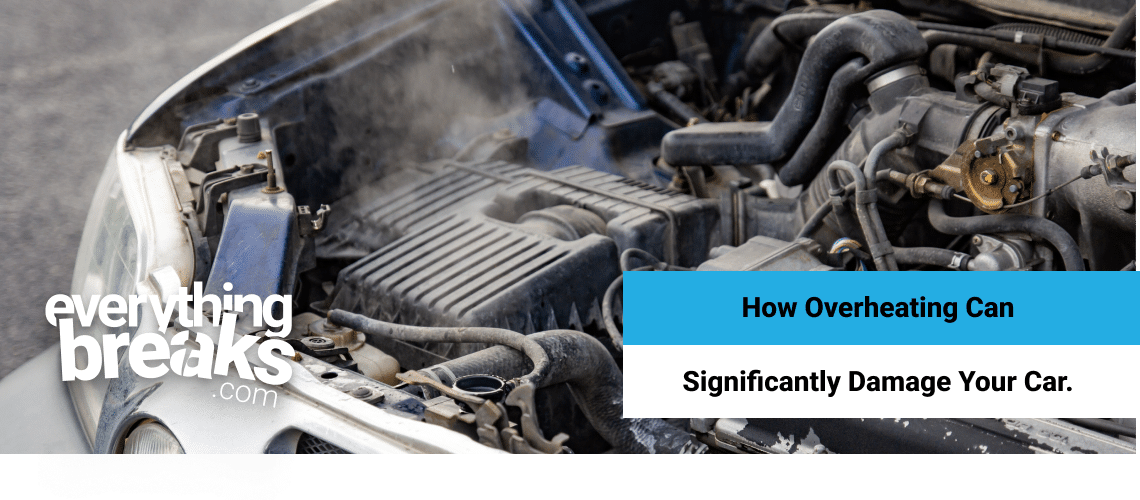When a car overheats, it’s a serious issue that can lead to extensive and costly repairs, especially if it’s not quickly fixed. The problem is that not many people have the money saved up to pay for a surprise car repair. Despite this, the importance of addressing overheating problems should not be overlooked. Always get your car fixed right away to avoid losing it altogether. Thankfully, if you have an auto protection plan, you can save hundreds and even thousands of dollars on your repair bill.
What Causes Cars to Overheat?
Car engines run hot, and they need to be constantly cooled in order to keep them operating properly. When they aren’t cooled, many components begin to fail. What causes these issues? Several factors can cause a car to overheat, including:
- Coolant Leaks: a leak in the coolant system can lead to a low coolant level, reducing the system’s ability to regulate the engine’s temperature. Common leak points include the radiator, hoses, water pump, and head gasket.
- Radiator Issues: a malfunctioning radiator can impede the cooling process. Issues such as clogs, corrosion, or damage can prevent the radiator from effectively dissipating heat.
- Thermostat Failure: the thermostat regulates the flow of coolant between the engine and the radiator. If it gets stuck closed, it can prevent coolant from circulating, causing the engine to overheat.
- Water Pump Problems: the water pump is essential for circulating coolant through the engine. A failing water pump can disrupt this flow, leading to overheating.
- Fan Malfunction: cooling fans help maintain airflow through the radiator, especially when the vehicle is stationary. A broken or malfunctioning fan can reduce cooling efficiency, causing the engine to overheat.
How Can Cars Become Damaged When They Overheat?
When a car overheats, the excessive heat can cause significant damage to various engine components. The high temperatures can wreak havoc on many parts of your vehicle:
- Warp Engine Components: overheating can cause metal components like the cylinder head and engine block to warp. This warping can lead to improper sealing, loss of compression, and engine inefficiency.
- Blow Head Gaskets: the head gasket seals the engine block and cylinder head. Overheating can cause this gasket to fail, leading to coolant and oil leaks, and potential engine failure.
- Damage Pistons and Cylinders: excessive heat can cause pistons to expand and scuff against the cylinder walls, damaging both the pistons and the cylinder liners.
- Cracked Engine Blocks: severe overheating can cause the engine block to crack, leading to catastrophic engine damage that is often irreparable.
What Parts Generally Need to Be Replaced When a Car Overheats?
Depending on the severity of the overheating, several components may need replacement, which can often lead to major repairs. The components that may need to be replaced include:
- Head Gasket: if the head gasket blows due to overheating, it will need to be replaced to restore the seal between the cylinder head and engine block.
- Radiator: a damaged or clogged radiator often requires replacement to ensure proper cooling.
- Thermostat: a failed thermostat that causes overheating must be replaced to restore proper coolant flow.
- Water Pump: if the water pump fails, it will need to be replaced to restore the coolant circulation system.
- Engine Components: in severe cases, components such as the cylinder head, engine block, pistons, and cylinders may need repair or replacement due to warping or damage.
What’s the Danger of Not Fixing an Overheated Car?
Neglecting to fix an overheated car can lead to several severe consequences:
- Engine Failure: continued driving with an overheating engine can lead to complete engine failure, requiring a costly engine rebuild or replacement.
- Increased Repair Costs: ignoring the issue can cause minor problems to escalate into major repairs, significantly increasing the cost of fixing the car.
- Reduced Vehicle Lifespan: persistent overheating can reduce the overall lifespan of the vehicle, as recurring damage diminishes the engine’s reliability and performance.
- Safety Risks: an overheated engine can suddenly fail, posing safety risks to the driver and passengers, especially if it happens on a busy road.
Save Money on Costly Car Repairs with an Auto Protection Plan
Car overheating is a serious issue that can lead to extensive and costly repairs if not addressed quickly. That’s why it’s important to invest in an auto protection plan from Everything Breaks. Our plans provide financial protection and peace of mind, ensuring you are covered in an overheating issue. We’re here to help you find the right auto protection plan for your car and budget. Get in touch with us today to get the coverage you need.








